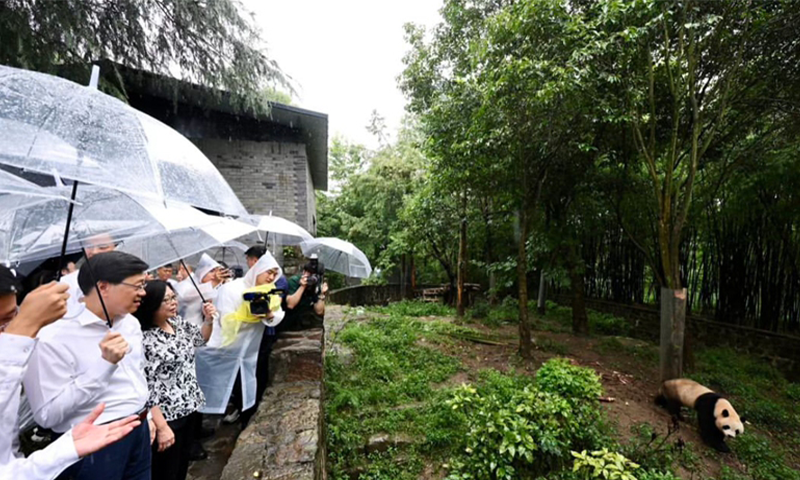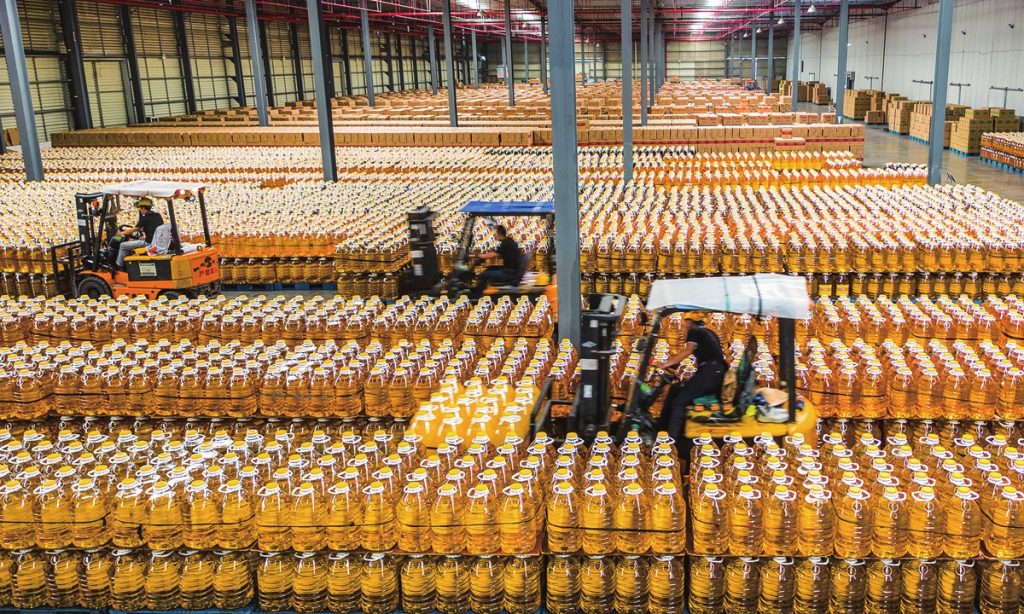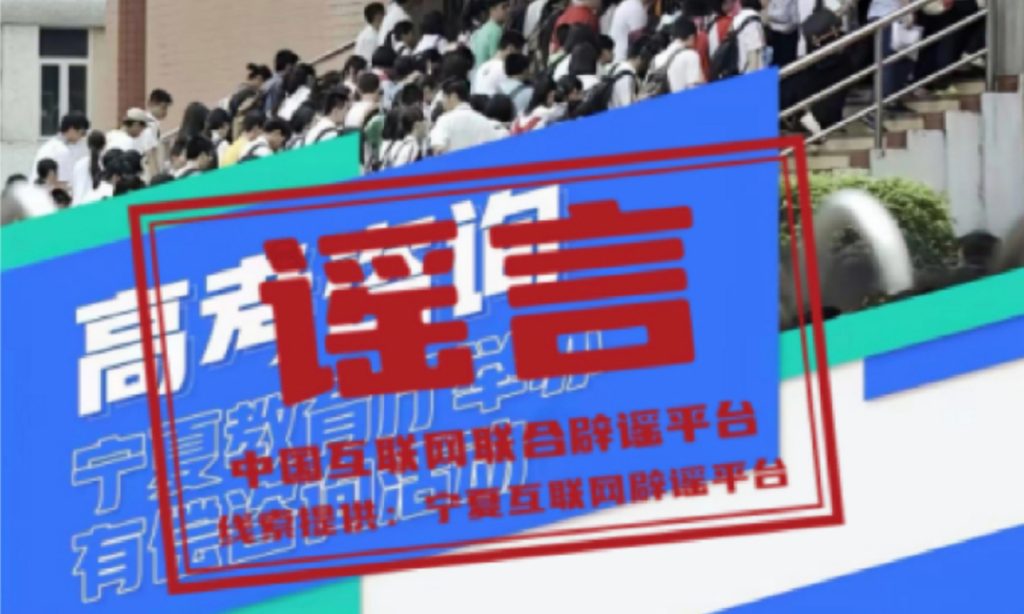A pair of 5- to 8-year-old giant pandas to be sent to Hong Kong

The Hong Kong Special Administrative Region Chief Executive John Lee revealed on Tuesday that the National Forestry and Grassland Administration has selected a pair of male and female giant pandas, aged between 5 and 8 years, to make their new home in the city, emphasizing that efforts are being made to ensure the giant pandas to arrive in Hong Kong by October 1.
These two giant pandas are in their prime and adulthood, and are in robust health, Lee said, expressing the hope that they will thrive and reproduce in Hong Kong.
The male panda, weighing around 120 kilograms, agile, very energetic, is characterized as "intelligent and active," while the female panda weighs about 100 kilograms and is described as "gentle, elegant, and described as docile and cute," Lee told a group of reporters on Tuesday in Southwest China's Sichuan as he is currently visiting the province to work on the details for welcoming the pair of pandas to Hong Kong.
The pair of pandas are currently undergoing acclimatization at the Dujiangyan Base of the China Conservation and Research Centre for the Giant Panda, and will undergo a 30-day quarantine there, followed by another 30-day quarantine upon arrival in Hong Kong. They will need to adapt to their new environment before they can meet the public.
Lee announced on the occasion of the 27th anniversary of Hong Kong's return to the motherland on July 1 that the city will welcome the new pair of pandas.
Lee said the most important task during his visit to Sichuan this week is to expedite the arrival of the giant pandas in Hong Kong, select the pandas, and finalize the agreement as soon as possible. The details of the agreement will be announced later.
Upon returning to Hong Kong, there will be a series of follow-up tasks, including the Cultural, Sports, and Tourism Bureau and Ocean Park designing promotional activities, the CE noted.
"We hope to make the great event of the giant pandas coming to Hong Kong as perfect as possible," he said, with the goal of having the next generation of giant pandas born in Hong Kong.
Experts will closely monitor the pandas once they enter their breeding period and will make appropriate arrangements.
If the pair of giant pandas gifted to Hong Kong could give birth to a panda, we hope it will not just be a single cub, as giant pandas have also given birth to twins. Therefore, it is essential to thoroughly understand the health and state of these giant pandas, as the breeding period is very short, Lee said.
The agreement between the two sides stipulates that if mainland experts are needed in Hong Kong for assistance, discussions will be held based on the specific situation. He described the birth of a new generation of giant pandas as very rare and symbolically significant under the One Country, Two Systems principle, adding that Hong Kong residents are eager to see the birth of the next generation of giant pandas.
Ocean Park is preparing for the arrival of the pair of giant pandas. This includes sending caretakers to Sichuan for training and understanding the habits of the pandas that will relocate to Hong Kong, to ensure proper care in the future, Secretary for Culture, Sports and Tourism Kevin Yeung was quoted as saying in the media reports on Tuesday.
The park will also improve the current facilities for the pandas, such as adding plants or climbing structures, and consider increasing photographic equipment to enable real-time sharing of the pandas' activities, the Hong Kong official said.
Also, before the pandas depart for Hong Kong, bamboo grown in South China's Guangdong Province or at Ocean Park will be sent to Sichuan to allow the pandas to become accustomed to it in advance.
Ocean Park will also support health check procedures for the pandas and cooperate with the Agriculture, Fisheries, and Conservation Department to ensure the quarantine process in Hong Kong is completed smoothly, Yeung said.

